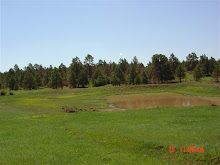EPA Launches National Investigation of Hydraulic Fracturing
Okay, I know that I said I would resume daily posting a couple of days ago, but life just keeps getting in the way.
EPA Launches National Study of Hydraulic Fracturing
by Abrahm Lustgarten, ProPublica - March 18, 2010 3:38 pm EDT
Responding to reports of environmental contamination in gas drilling areas across the country, the U.S. Environmental Protection Agency will conduct a nationwide scientific study to determine if the problems are caused by the practice of injecting chemicals and water underground to fracture the gas-bearing rock.
The study, announced Thursday but hinted at for months, will revisit research the agency published in 2004, which concluded that the process of hydraulic fracturing did not pose a threat to drinking water. The 2004 report has been widely criticized, in part because the agency didn't conduct any water tests in reaching that conclusion.
"The use of hydraulic fracturing has significantly increased well beyond the scope of the 2004 study," EPA spokeswoman Enesta Jones wrote in response to questions from ProPublica. The old study, she said, did not address drilling in shale, which is common today. It also didn't take into account the relatively new practice of drilling and hydraulically fracturing horizontally for up to a mile underground, which requires about five times more chemical-laden fluids than vertical drilling. "This study is the agency's response to public concern about this practice and Congressional request."
The 2004 report was used by the Bush administration and Congress to justify legislation exempting hydraulic fracturing from oversight under the Safe Drinking Water Act. The exemption came to be known in some quarters as the "Halliburton loophole" and has inhibited federal regulators ever since.
The fracturing technology, in which a mixture of chemicals and water is injected underground with sand at high pressure to crack the earth and release natural gas, made it possible for energy companies to open vast domestic energy reserves across the country and fueled a nationwide boom in drilling activity.
"EPA needs to finish what it started," said Gwen Lachelt, director of the Oil and Gas Accountability Project, a Colorado-based advocacy group that represents landowners with contaminated water. "We need comprehensive studies of the entire exploration and production process, but this is an important place to start." More>>>






0 comments:
Post a Comment